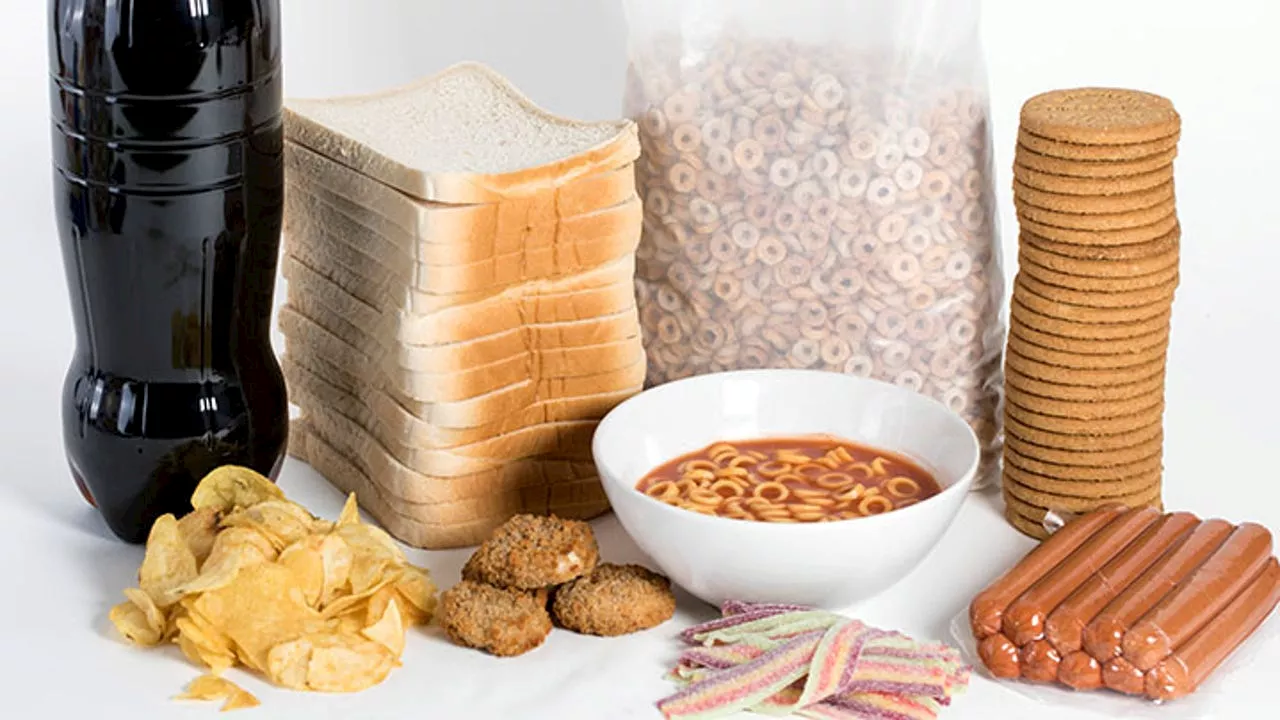Health
New Study Reveals Link Between Ultra-Processed Foods and Colon Cancer Risk

Researchers from the Mass General Brigham Cancer Institute have identified a significant link between the consumption of ultra-processed foods and an increased risk of early signs of colon cancer in young adults. The study, which involved nearly 30,000 healthy women, indicates that a higher intake of these foods correlates with a greater likelihood of developing colorectal precursor lesions known as colon adenomas.
Ultra-processed foods encompass a range of items, including boxed soups, frozen meals, and products containing industrial ingredients not typically found in home kitchens. These foods have become prevalent in the American diet, accounting for approximately 70% of daily consumption, according to public health estimates. The findings contribute to ongoing concerns among cancer experts about the rising incidence of colorectal cancer diagnoses in younger populations.
Rising Concerns Among Health Experts
Dr. Katherine Van Loon, a professor at the University of California, San Francisco (UCSF), and director of the UCS Global Cancer Program, stated that the research sheds light on the troubling trend of increasing colorectal cancer cases among younger individuals. “Every patient in my clinic is very, very young,” she remarked. “We’re seeing decreasing rates in people over 45, but rising rates in younger people. This is resulting in a rising mortality rate from an otherwise preventable disease.”
The study aligns with previous research that has associated early-onset colorectal cancer with factors such as obesity, Type 2 diabetes, sedentary lifestyles, and diets high in red and processed meats and sugars. However, Dr. Van Loon emphasizes that many of her younger patients do not fit these typical risk profiles, making this study particularly vital in understanding the underlying causes of this health crisis.
While specific foods were not detailed in the study, Dr. Van Loon highlighted that ultra-processed foods generally include convenient options that have become staples for many families since the 1970s. As these patterns of consumption continue, she urges individuals to consider adopting healthier dietary habits.
Encouraging Healthier Choices
Dr. Van Loon believes it is not too late for individuals to shift towards healthier eating patterns. Drawing parallels with tobacco cessation, she explained, “We know from tobacco research that when someone stops smoking, their cancer risk decreases.” She advocates for a dietary focus on fresh foods, including vegetables and unprocessed meats, while encouraging anyone aged 45 or older to undergo screening for colorectal cancer.
Additionally, she emphasizes the importance of addressing symptoms that could indicate underlying health issues. “If someone is experiencing bowel changes, blood in their stool, abdominal pain, cramping, or unexplained weight loss, they should see a doctor,” Dr. Van Loon advised. “Just because you’re not yet 45 doesn’t mean those symptoms don’t need medical attention.”
Raising awareness and taking proactive measures may help reverse the concerning trend of increased colorectal cancer among younger adults. The implications of this study underline the critical need for individuals to make informed dietary choices and prioritize their health.
-

 Top Stories1 month ago
Top Stories1 month agoNew ‘Star Trek: Voyager’ Game Demo Released, Players Test Limits
-

 World1 month ago
World1 month agoGlobal Air Forces Ranked by Annual Defense Budgets in 2025
-

 World1 month ago
World1 month agoMass Production of F-35 Fighter Jet Drives Down Costs
-

 World1 month ago
World1 month agoElectrification Challenges Demand Advanced Multiphysics Modeling
-

 Science1 month ago
Science1 month agoTime Crystals Revolutionize Quantum Computing Potential
-

 Business1 month ago
Business1 month agoGold Investment Surge: Top Mutual Funds and ETF Alternatives
-

 Entertainment1 month ago
Entertainment1 month agoFreeport Art Gallery Transforms Waste into Creative Masterpieces
-

 Top Stories1 month ago
Top Stories1 month agoDirecTV to Launch AI-Driven Ads with User Likenesses in 2026
-

 Lifestyle1 month ago
Lifestyle1 month agoDiscover Reese Witherspoon’s Chic Dining Room Style for Under $25
-

 Health1 month ago
Health1 month agoGavin Newsom Critiques Trump’s Health and National Guard Plans
-

 Lifestyle1 month ago
Lifestyle1 month agoLia Thomas Honored with ‘Voice of Inspiration’ Award at Dodgers Event
-

 Business1 month ago
Business1 month agoUS Government Denies Coal Lease Bid, Impacting Industry Revival Efforts








